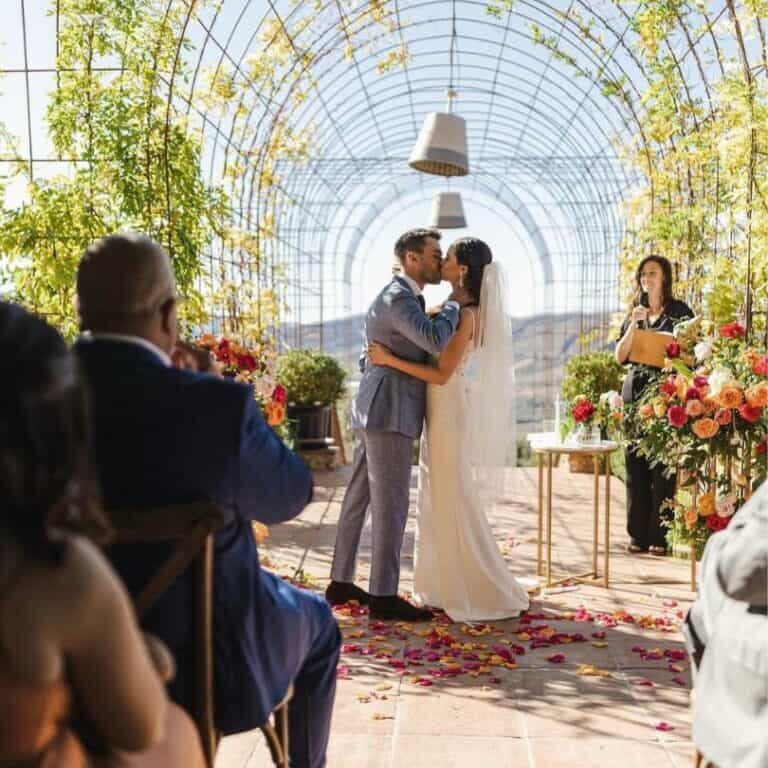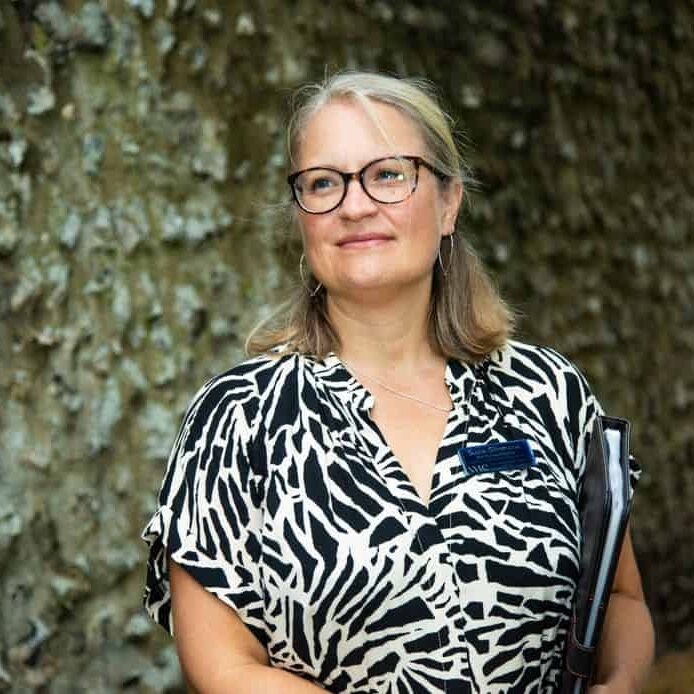Stuart Entwistle’s journey from a senior Social Worker to Funeral Celebrant is nothing short of inspiring. Graduating from The Academy of Modern Celebrancy in 2021, Stuart’s career transition reflects a deep-rooted desire to connect with people at pivotal moments in their lives. His extensive background in social work, spanning over two decades, laid a solid foundation for his new path in celebrancy. This transition showcases his commitment to personal growth and a passion for supporting others during their most challenging times.
Social Worker to Funeral Celebrant: Reassessing priorities and finding a new career path.
Stuart Entwistle’s journey from a senior social worker to a Funeral Celebrant is marked by his desire to return to the roots of what initially drew him to his career: working closely with and supporting people. After spending over two decades in social work, with several of those years in senior management, Stuart began to feel a disconnect from the direct, personal interaction that he once cherished. As he advanced in his career, his role became more administrative and less about the face-to-face connections that he found most fulfilling.
During the lockdown, a period rife with stress and introspection, Stuart found himself reassessing his professional life. It was then that he stumbled upon the field of celebrancy. The prospect of becoming a celebrant intrigued him as it resonated with his innate desire to be present for people during significant moments in their lives. This discovery led him to contact The Academy of Modern Celebrancy, where a conversation with Jennifer solidified his interest.
Find Stuart at SJ Exclusive Celebrant Services
Personal growth and career development in funeral service.
Stuart saw celebrancy, particularly funeral celebrancy, as an avenue to reconnect with people in a meaningful way. He recognized that his extensive experience in social work, especially in supporting individuals during challenging times, would be a valuable asset in this new role. This shift presented him with the opportunity to be intimately involved in people’s lives again, providing support and comfort during one of their most difficult times – the loss of a loved one.
“I feel having worked in social care for so many years, There’s a lot of transferable skills that I’ve been able to bring.”
Embracing the change, Stuart embarked on his training, first in weddings and then in funerals. His decision to specialize in funerals was driven by the personal satisfaction he found in helping families navigate their grief and celebrate the lives of their loved ones. This career transition was not just about a change in profession for Stuart, but a reconnection with his fundamental passion for direct human service, a passion that had initially led him to social work.
Read more: Essential traits for Funeral Celebrants
First funeral experience.
On one of the hottest days in August, Stuart Entwistle faced his first test as a Funeral Celebrant. The heat was intense, and Stuart, dressed in his formal suit, felt the pressure both physically and emotionally as he entered the crematorium for his inaugural funeral service.
This moment was crucial for Stuart. It was his first opportunity to put his training into practice, to conduct a ceremony that respected the deceased and offered solace to the bereaved. Despite the challenging conditions, Stuart remained focused on the task at hand.
Throughout the service, Stuart managed his nerves and the extreme heat. He was there to offer a meaningful experience for the family, and he concentrated on ensuring every part of the service was conducted with respect and sensitivity.
After the funeral, the feedback from the funeral director was positive and encouraging. They were impressed with Stuart’s handling of the ceremony, particularly given that it was his first. This experience was a significant confidence booster for Stuart and confirmed his decision to transition into celebrancy. As he left the crematorium, Stuart felt a strong sense of achievement and a clear confirmation that he had embarked on a rewarding new career path.
Interested: Find out how to become a Funeral Celebrant
Transitioning from Full to Part Time
Stuart is navigating a significant shift in his professional life, balancing his established career with his burgeoning role as a Funeral Celebrant. Currently, he is still engaged in his full-time job, but from the first of July, he has strategically decided to transition to part-time work. This move is a calculated step towards gradually phasing out of his long-standing career and dedicating more time and energy to his passion for celebrancy.
This transition is not just a change in his work schedule; it represents Stuart’s commitment to his new path while maintaining financial stability. He is aware of the practicalities and challenges of completely switching careers, especially the need to balance financial responsibilities. By going part-time, Stuart aims to give himself the space and time to grow his celebrancy practice without the immediate pressure of completely giving up his current job.
In parallel with adjusting his work life, Stuart took proactive steps to establish himself in the local celebrancy scene. After qualifying as a Funeral Celebrant, he reached out to local funeral directors. His approach was honest and straightforward: he introduced himself, explained his new qualification, and expressed his desire to work with them. By openly acknowledging his newcomer status in the industry and outlining his vision for what he wanted to deliver, Stuart successfully secured his first opportunity.
This initial engagement with a local funeral director was crucial. It not only opened the door for him in the funeral service industry but also set the stage for future opportunities. As the calls started coming in, Stuart’s decision to gradually shift from full-time work to part-time became increasingly viable, allowing him to foster his celebrant practice more robustly.
Stuart’s journey is a testament to careful planning and the importance of building professional relationships. His story illustrates how a thoughtful and strategic approach can facilitate a significant career change.
A Supportive celebrant community.
Stuart describes how his transition into a career as a Funeral Celebrant was greatly supported by his experience with The Academy of Modern Celebrancy (AMC). The AMC played a pivotal role in Stuart’s journey, providing him with the necessary training and a supportive environment that extended beyond the classroom.
During his time with the AMC, Stuart received significant support from his mentor. This guidance was crucial in his development and learning process. His mentor was readily accessible, responding promptly to emails and phone calls, and offering reassurance and advice whenever needed. This support was not just instructional; it was also emotional, helping Stuart navigate the challenges of learning a new profession. The mentorship at AMC proved to be an invaluable resource, ensuring that Stuart never felt isolated or overwhelmed during his training.
Beyond the individual mentorship, Stuart found himself part of a broader, nurturing community within the AMC. This community, comprising fellow celebrants and professionals, fostered a sense of belonging and mutual support. Stuart highlights the collaborative nature of this community, where members are seen as colleagues rather than competitors, ready to offer advice, share experiences, and even recommend each other for opportunities when needed.
“You never feel isolated… It’s a really close knit, supportive mutually supportive community.”
Stuart’s involvement in this community extends to participating in local WhatsApp groups and engaging in regular interactions with his peers. This ongoing support system has been instrumental in his continued development as a celebrant. It offers a platform for sharing knowledge, discussing challenges, and celebrating successes.
The AMC’s role in Stuart’s career transition extends beyond just training; it has provided a foundation of continuous support and community, crucial elements in his successful foray into celebrancy.
Why I chose Funeral Celebrancy
“I feel so honored to be involved with people at one of the worst times of their lives… to craft a ceremony that absolutely reflects the loved one who’s passed away.”
Stuart’s decision to specialize in funeral celebrancy was driven by a profound sense of purpose and a desire to make a meaningful impact during people’s most challenging times. He chose this path because it aligned with his innate inclination to support and comfort individuals coping with loss. To Stuart, funeral celebrancy is not just a profession; it’s a calling that allows him to be part of people’s lives when they are most vulnerable and in need of compassion.
Stuart speaks about funeral celebrancy with a deep sense of honour and responsibility. He finds fulfilment in crafting ceremonies that thoughtfully reflect the life and essence of the departed. For him, it’s about creating a space where families can celebrate the lives of their loved ones and start their healing journey. This aspect of celebrancy, while emotionally demanding, provides Stuart with a unique sense of satisfaction.
One of Stuart’s most challenging yet rewarding experiences as a Funeral Celebrant involved conducting a service for a young man who passed away suddenly at the age of 27. The funeral was attended by over 250 people, including the young man’s devastated family and friends. Stuart recalls the palpable grief in the crematorium, which was filled with heartbroken peers and mourning parents.
This service tested Stuart’s emotional resilience. He acknowledges the weight of emotion he felt, especially in witnessing the profound impact of the young man’s death on his community. However, it was through this experience that Stuart realized his capacity to manage overwhelming emotions and deliver a ceremony with dignity and empathy. The use of pauses and careful phraseology in his speech, skills honed during his training, proved to be particularly powerful in this context.
For Stuart, the service was not only about honouring the young man’s memory but also about supporting the family and friends through their grief. The experience, while challenging, reinforced his commitment to funeral celebrancy. It highlighted the significant role a celebrant plays in providing comfort and closure to those grieving, making it one of the most rewarding experiences of his career.
Interested in becoming a Funeral Celebrant?
Stuart’s journey into funeral celebrancy serves as an inspiring example for anyone considering a career in this profoundly rewarding field.
If you feel drawn to a profession where compassion, empathy, and the ability to support people in their moments of profound grief are central, then becoming a Funeral Celebrant might be your calling.
We invite you to explore this path further and discover how you can make a meaningful difference in people’s lives.
Learn more about our accredited funeral celebrant training, which offers comprehensive, supportive, and flexible learning to equip you with the skills and knowledge needed to excel in this unique and fulfilling career. Join us on a journey that not only changes lives but also enriches your own.
Jennifer Claire
Jennifer is the Director of the leading celebrant training company, The Academy of Modern Celebrancy as well as the Founder of The Celebrant Directory, supporting over 600 celebrants globally.
Jennifer run a 2.5k community of celebrants who she dedicates her time to helping them grow their businesses and taking celebrancy from a hobby to a lifestyle.
Jennifer heads up the global Celebrant Industry Awards and the global celebrant summit, Celebrantopia each year!
A celebrant herself since 2010, she knows what it takes to make it in the industry and trains the best celebrants out there across the UK, Europe and the USA.
Take the Quiz to find out if you have what it takes!
Download the Ultimate Guide to becoming a Celebrant & find out how you can make this happen!

If you liked this article you may enjoy ...
Training to be an accredited Celebrant in Spain
Celebrancy is a growing profession in Spain fueled by demand for personalised, non-religious, and interfaith ceremonies, destination weddings and robust ex-pat communities from the UK and beyond. If you’re considering Training to be an accredited Celebrant in Spain, there are a few things you’ll need to know, so we’ve put together this handy guide to…
From Charity Fundraiser to Celebrant: Interview – A mid-life career journey
Suzie Simmons is a Celebrant from Winchester, Hampshire who trained with The Academy of Modern Celebrancy. She has enjoyed a successful career as a Charity Fundraiser for small to medium-sized regional health-based charities and currently works as a head of fundraising and children and young adult hospice alongside her Celebrancy work. Suzie spoke to AMC…
5 Essential Skills for Celebrants
Have you ever dreamt of officiating life’s most cherished moments – the joyous vows of a wedding ceremony, the heartwarming welcome of a newborn child, or the dignified farewell of a loved one? Celebrants play a crucial role in weaving these threads of life into meaningful experiences. But what exactly does it take to become…
As featured in










